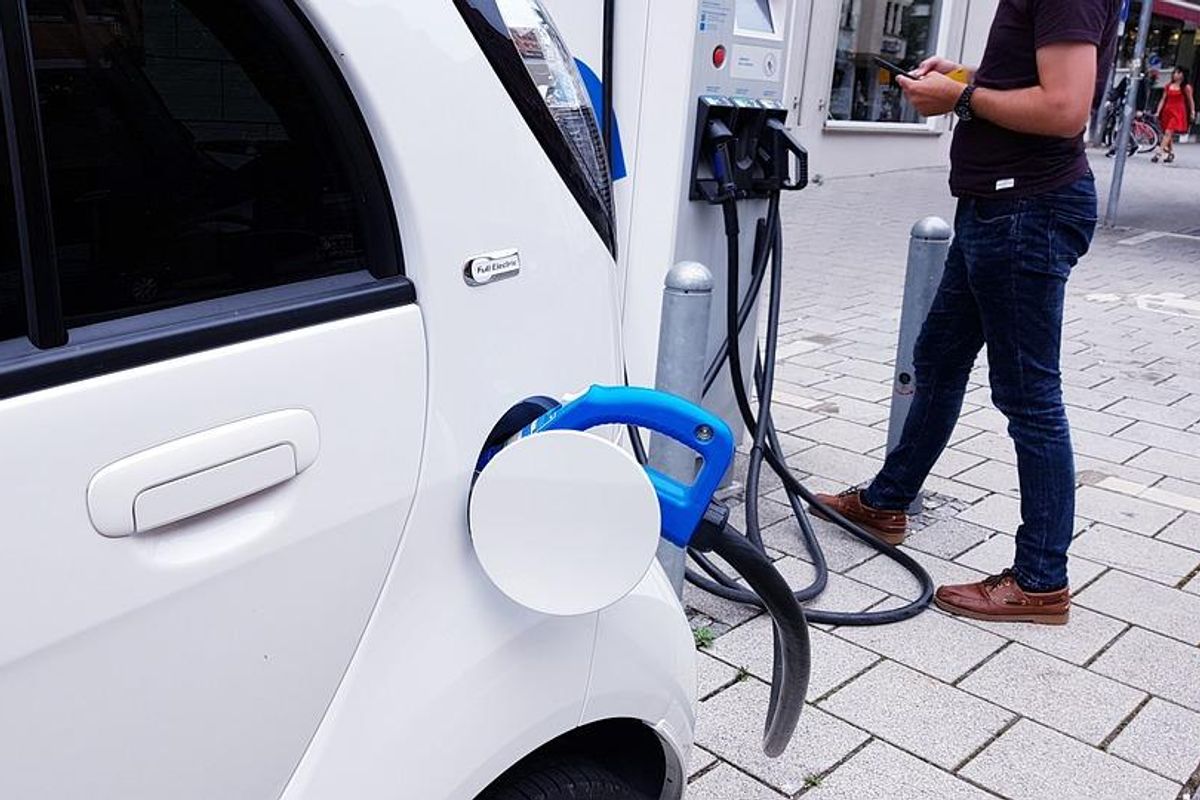
Most of the time, when people tout the positive environmental impact of electric vehicles, they talk about how EVs are an excellent way for people to reduce their carbon footprints. Electric cars are responsible for less greenhouse gas production than traditional combustion engines.
But a new study from the University of Southern California has found that EVs are also great for creating healthier communities in California. A team of researchers from the university recently released a report that found EVs reduce air pollution and asthma-related emergency room visits.
Currently, nearly 2.9 million adults in California suffer from asthma.
“When we think about the actions related to climate change, often it’s on a global level,” lead author Erika Garcia, Ph.D., MPH, said in a statement. “But the idea that changes being made at the local level can improve the health of your own community could be a powerful message to the public and to policy makers.”
To see if EV adoption lowered air pollution, they compared the number of vehicles registered in California zip codes between 2013 and 2019 with the frequency of asthma-related emergency room visits. Over this period, the number of EVs in the state increased from 1.4 to a still-modest 14.7 cars per 1,000. California was the perfect place to track pollution improvements related to EV purchases because studies show that the state is about five years ahead of the rest of the country regarding EV adoption.
In 2022, EVs were nearly 16% of new light-duty vehicles sold in California.
u201cAdoption of electric vehicles has real world health benefits.nnu201cfor every additional 20 EVs per 1,000 people, there was a 3.2% drop in the rate of #asthma related emergency visitsu201dnnhttps://t.co/ycKBLUxeSvu201d— Roger McMorrow ud83cuddfaud83cudde6ud83cuddeeud83cuddea (@Roger McMorrow ud83cuddfaud83cudde6ud83cuddeeud83cuddea)
1675589010
The study found that for every 20 cars per 1,000 residents in a given zip code, the number of asthma-related ER visits decreased by 3.2%. Therefore, by increasing the number of people who drive EVs, we can lower the number who suffer from asthma.
The study also makes the case that more EV vehicles are needed in low-income neighborhoods to improve public health. EVs are more prevalent in affluent areas, which already have lower rates of air pollution than in low-income areas. However, California is already working to reduce this gap by providing low- to moderate-income Californians rebates for purchasing electric vehicles.

Starting on March 1, people with low-to-moderate incomes are eligible for rebates of $7,000 for a fuel-cell electric vehicle, $4,500 for a battery electric vehicle and $3,500 for a plug-in hybrid electric vehicle.
The good news from the study gives people another compelling reason to switch to EVs. They’re great for the planet and good for public health, too. Further, EVs are a win for the health system because fewer visits to the ER lowers health costs for everyone.
“The impacts of climate change on health can be challenging to talk about because they can feel very scary,” Sandrah Eckel, Ph.D., an associate professor of population and public health sciences at the Keck School of Medicine, and the study’s lead author said in a statement. “We’re excited about shifting the conversation towards climate change mitigation and adaptation, and these results suggest that transitioning to [EVs] is a key piece of that.”
